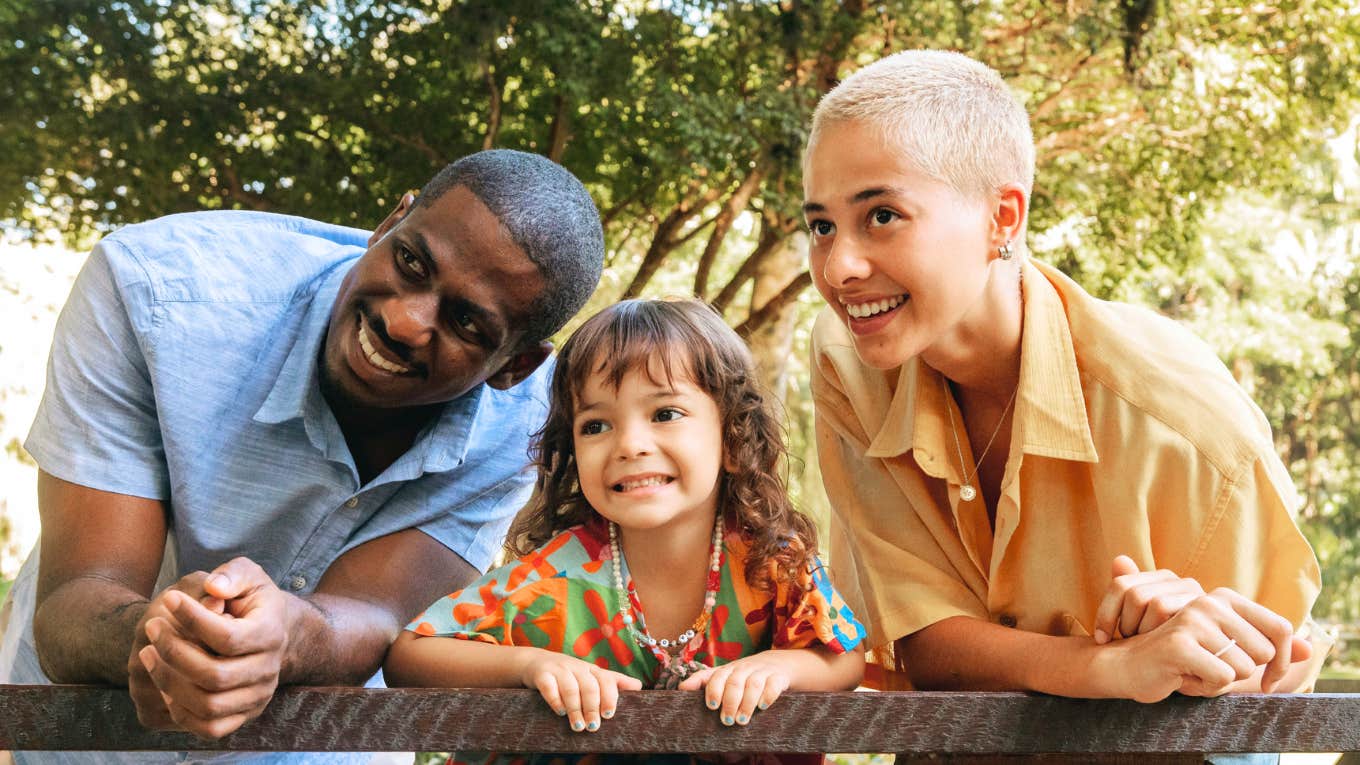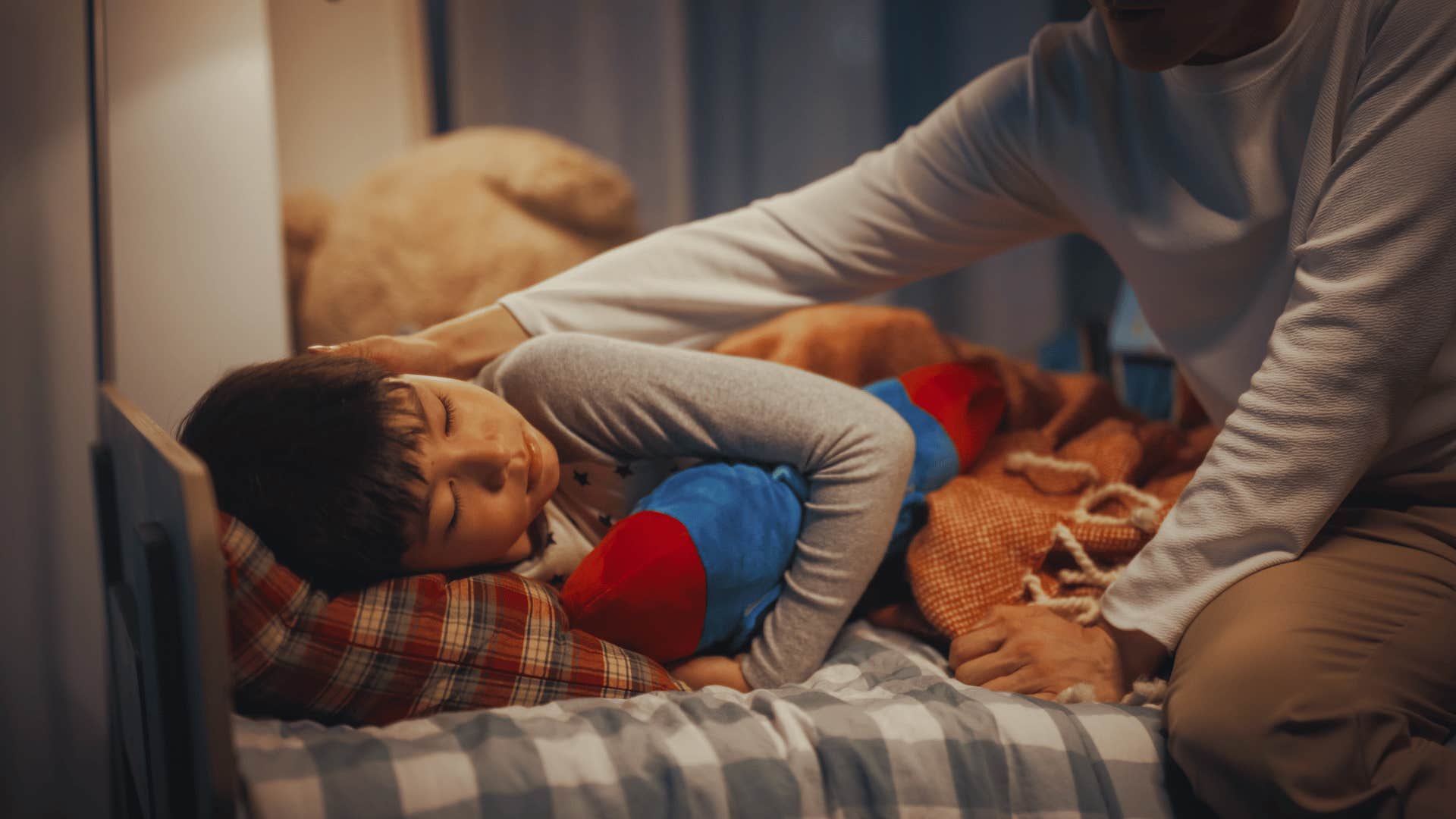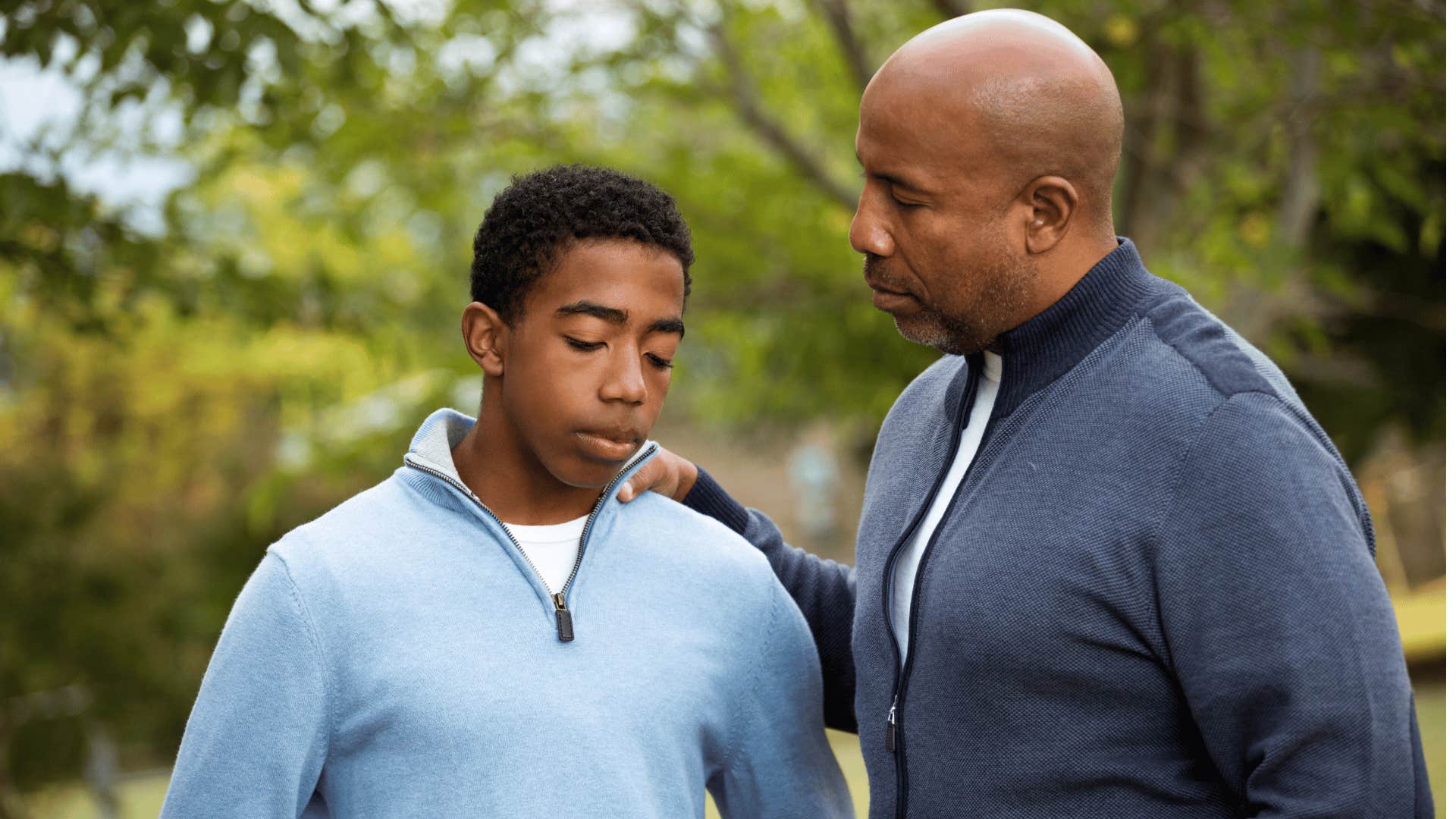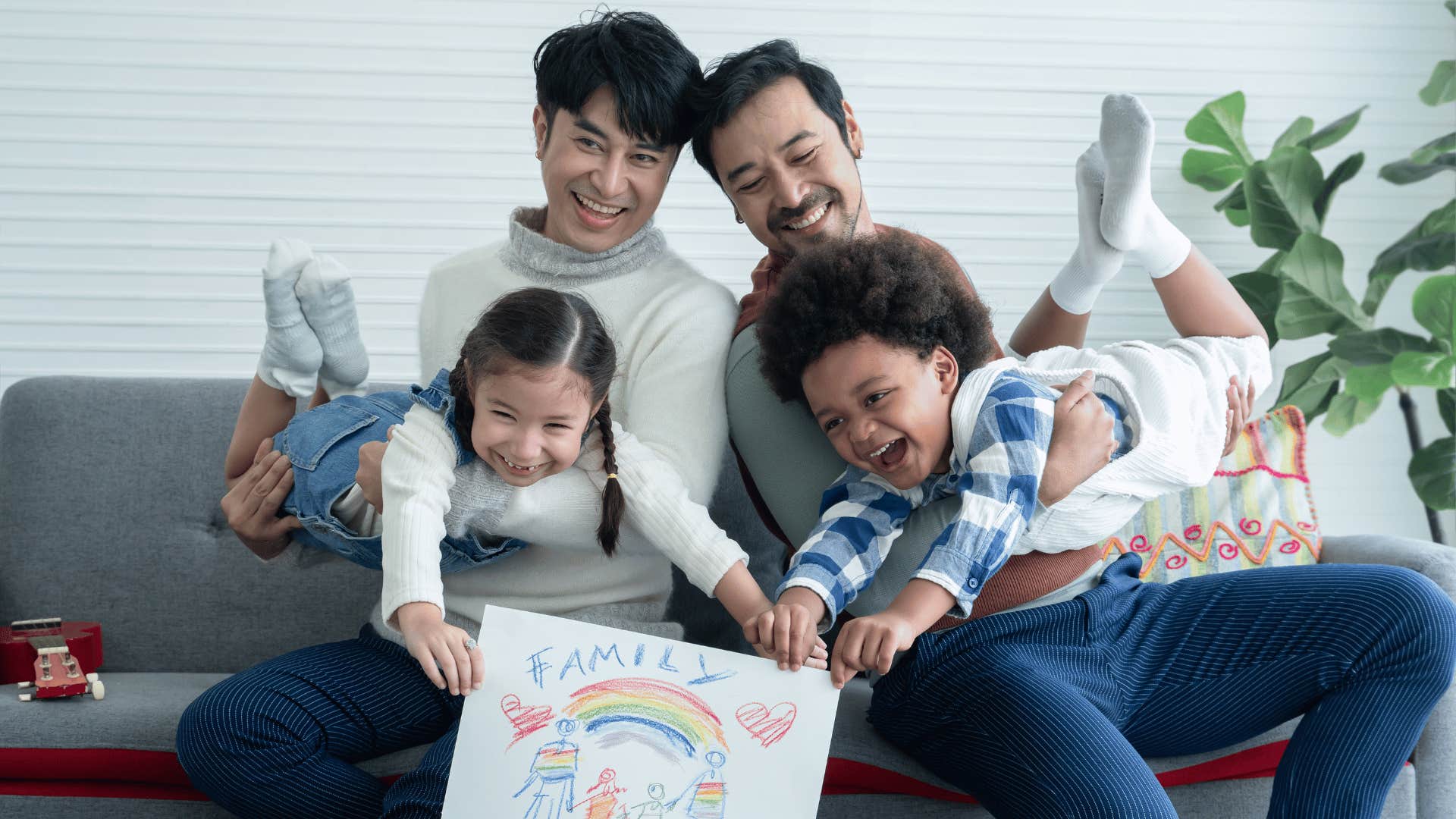8 Lifelong Behaviors Kids Pick Up From Their Parents, According To Experts
Children are always looking and learning through parental observation.
 Fellipe Ditadi | Unsplash
Fellipe Ditadi | Unsplash Kids are expert observers of behavior. They can pick up traits, habits, and lifelong behaviors easily — just by watching their own parents. It is part of a child's job description to learn from the examples and behavior modeled by the adults around them.
Parents are the most impactful determinant of children's imprinting and modeling of behaviors and habits. If you have ever accidentally let a No-No word slip out around a toddler, you know how fast the seed will take root in the child's mind and replicate exponentially.
Here are the lifelong behaviors kids pick up from their parents:
1. Vulnerability
 Jacob Lund via Shutterstock
Jacob Lund via Shutterstock
One of the most important life skills people have, or don't have, is the ability to put their feelings into words and then share their thoughts and feelings, constructively with the people closest to them, explains author Aline Zoldbrod, Ph.D.
This behavior can be learned as an adult, but it is easiest to learn as a child from your family of origin. This is a more complicated process than it sounds. It's also more complicated and multi-faceted than can be thoroughly explained in this article, too.
Parents usually help little children put their feelings into words, of course. But that's only one part of the process. Did our parents listen to what we were feeling, or were most of the words spoken to us directions, orders, or vapid comments about irrelevant things in life?
In my book, I explain a critical process in growing up is whether or not you learn to trust that your feelings are valued and will be taken seriously by your caretakers.
Almost a third of us have grown up in families with neglect or physical or emotional abuse. In families with neglect, we actively learn not to communicate. We feel like it is a worthless endeavor to make us feel like we are banging our heads against a brick wall. Or, as one of my patients said, "My parents weren't listening to my feelings, so I decided not to have them anymore."
In families with other kinds of abuse, we learn to be secretive about what went on in our family, which can make authentically attaching to other people problematic.
2. Manners
 Denis Kuvaev via Shutterstock
Denis Kuvaev via Shutterstock
Parents are the primary influence on simple manners like saying please and thank you, says life coach Ellen Kamaras. According to child psychologist Dr. Haim Ginot, the best way to teach children manners is to model good ones: common courtesy, respect, being on time, gratitude, etc.
3. Worry
 Kitreel via Shutterstock
Kitreel via Shutterstock
Counselor LouLou Palmer explains that parents who worry about the worst things that might happen, even if everything is going well at the moment, will likely imprint the same worry onto their children.
4. Guilt
 Pixelheadphoto Digitalskillet via Shutterstock
Pixelheadphoto Digitalskillet via Shutterstock
When kids hear criticism or judgment from their parents when they did something wrong, and feel guilt or shame that hasn’t been cleared, it becomes the lifelong way they talk to themselves. It sounds like “you should...” and contributes to the “I am not good enough” competitive epidemic, explains executive coach Carolyn Hidalgo.
Until we override these fearful internalized outer voices and lead from our true inner voice, we will not be living our greatest lives, but living by other people’s expectations masked as our own.
5. How to love
 mae_chaba via Shutterstock
mae_chaba via Shutterstock
Licensed clinical social worker Richard Drobnick explains how children absorb lessons about love and relationships by observing every interaction between their parents. Through their words, actions, and even their presence, parents demonstrate what love looks like and how it is expressed. Whether they show kindness and warmth — or handle disagreements with respect or resort to blame and criticism — these behaviors shape a child’s understanding of love and its role in relationships.
When parents model affection, mutual respect, and a nurturing connection, children learn that love is safe and supportive. If love seems distant or absent, children may develop guarded behaviors in their relationships. How parents navigate conflict further reinforces these lessons, teaching children whether love can endure even in disagreement.
6. Judgment
 fizkes via Shutterstock
fizkes via Shutterstock
Judgment and criticism of other people (and self) is learned from parents, states love and relationship coach Cassady Cayne. How we hear our parents talk about others affects how we talk to ourselves in our minds later, and how we interact with people for the rest of our lives.
If we grow up hearing our parents make mean comments about others based on appearance, criticizing people without knowing much about them, and other expressions of harshness, it can deeply damage our self-esteem, self-love, and how we interact with others. Someone who's always judging and criticizing isn't happy deep down, because it creates distance to other people and a lack of love.
This is a secret and pervasive cause of long-term unhappiness and issues in relationships. By showing children a compassionate attitude toward other people, we help them be happier long term.
7. How to be loved
 theshots.co via Shutterstock
theshots.co via Shutterstock
Relationship therapist Gloria Brame has seen how children are natural sponges when it comes to parental behaviors and attitudes. If their parents have poor hygiene or eat unhealthy meals, kids will grow up accepting those as norms and follow suit in adulthood.
Most troubling, though, are parents who have turbulent marriages. Children exposed to high levels of marital conflicts, domestic violence, unregulated emotions, dysfunctional attachment styles, or negative attitudes about life, will absorb those as life lessons and repeat the same cycles in adulthood. This leads to new generations of troubled, depressed, and otherwise dysfunctional people.
As poet Philip Larkin once wrote, "They [mess] you up, your mum and dad. They may not mean to, but they do. They fill you with the faults they had, And add some extra, just for you."
8. Resilience
 Yuganov Konstantin via Shutterstock
Yuganov Konstantin via Shutterstock
Resilience is an essential life skill, explains Ellen Luborsky, Ph.D. It means being able to adapt, recover from difficult experiences, and keep hold of your self-esteem. When parents convey a sense of trust in their children they give the foundation of this ability. When they encourage a child to find his solutions they are helping him trust themselves to figure things out.
When a parent unintentionally lets a no-no word slip out, the child picks it up and lets it run through their mouth. Unaware of the word's definition, children are hyper-aware of its impact.
The way a parent reacts when the word slips out, and how they react when the child repeats the word gives power to the word, and the child senses the power. Responding accordingly, they will repeat the word to observe the effect and gain attention.
The same is true with behaviors and habits. children observe the action and its impact and will repeat the behaviors to keep the spotlight on themselves. It is a child's way of navigating their environment, surviving, and adapting to the society where they are raised.
So watch your words and actions, the children are observing.
Will Curtis is a creator, editor, and activist who has spent the last decade working remotely.

